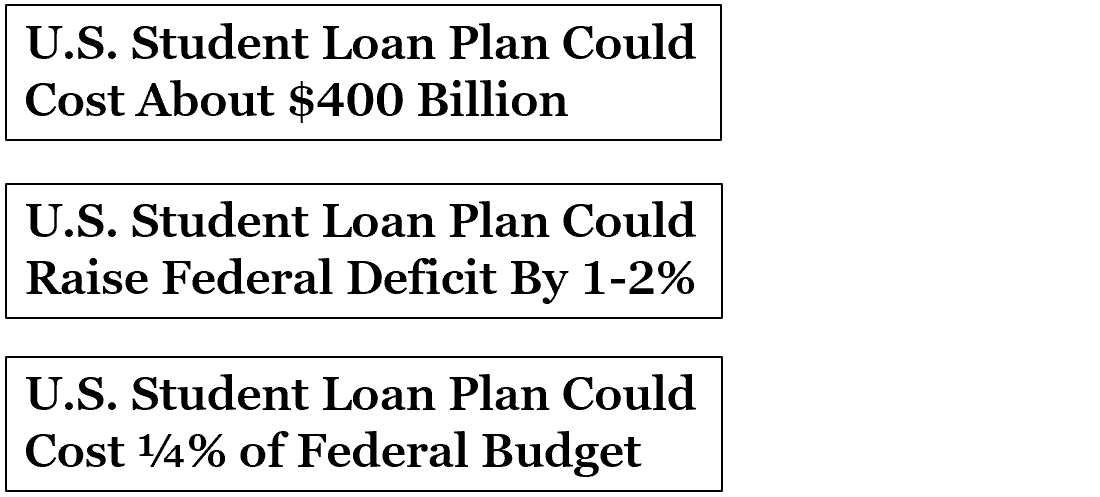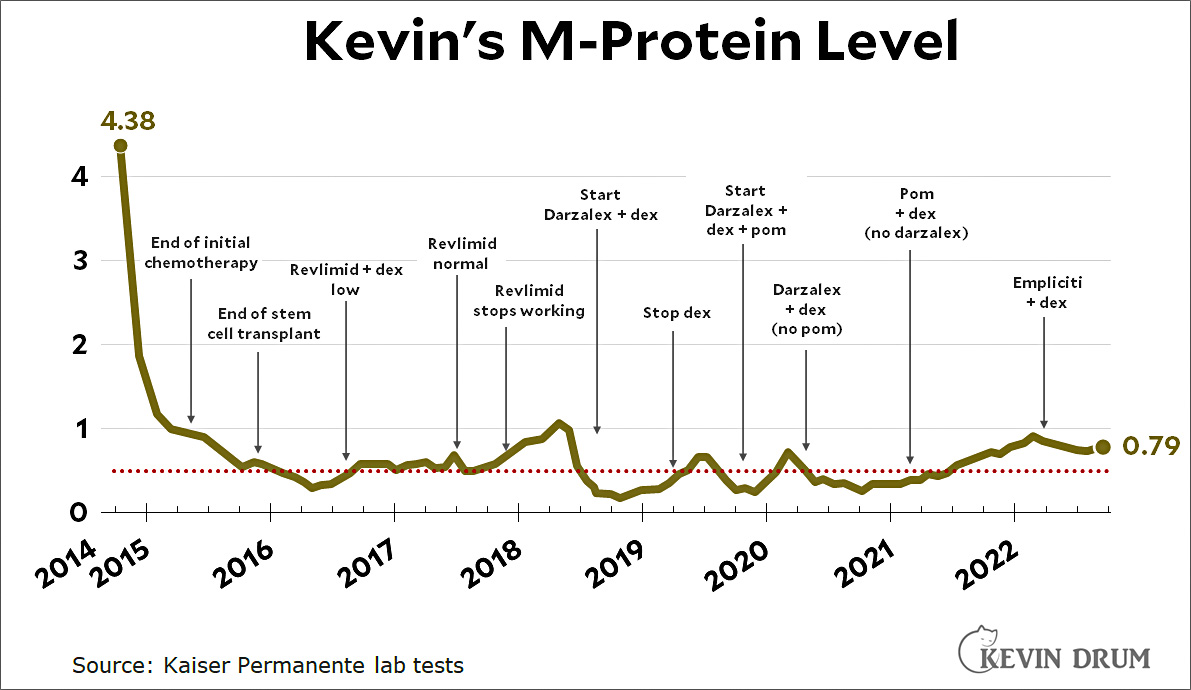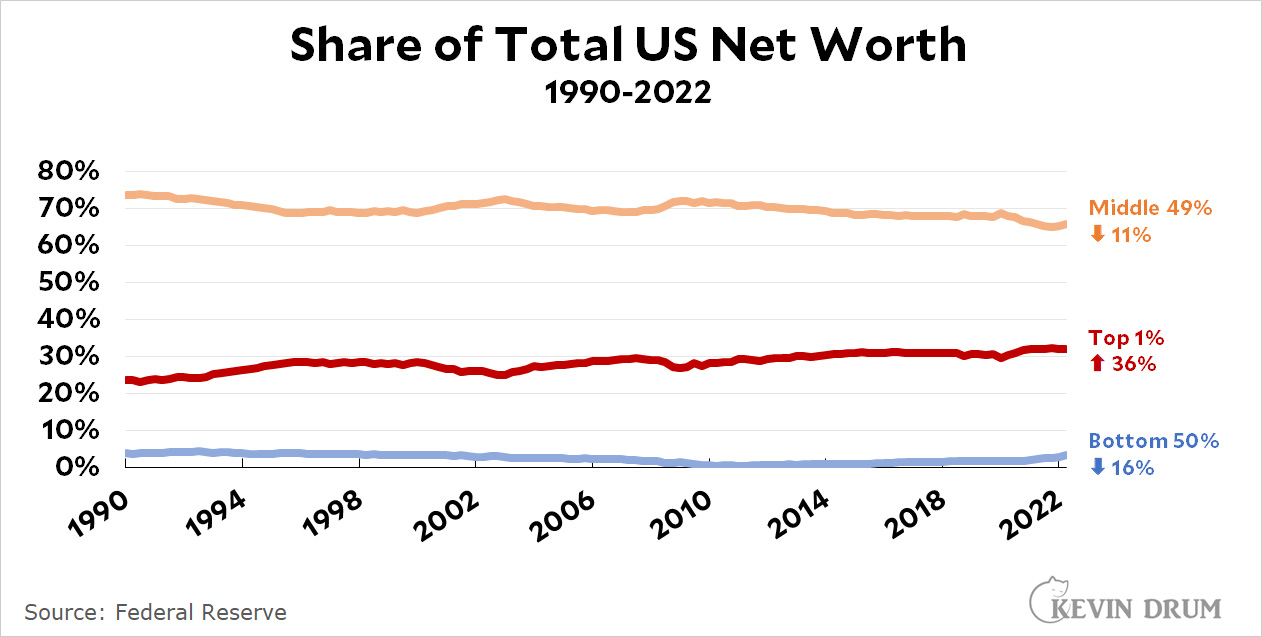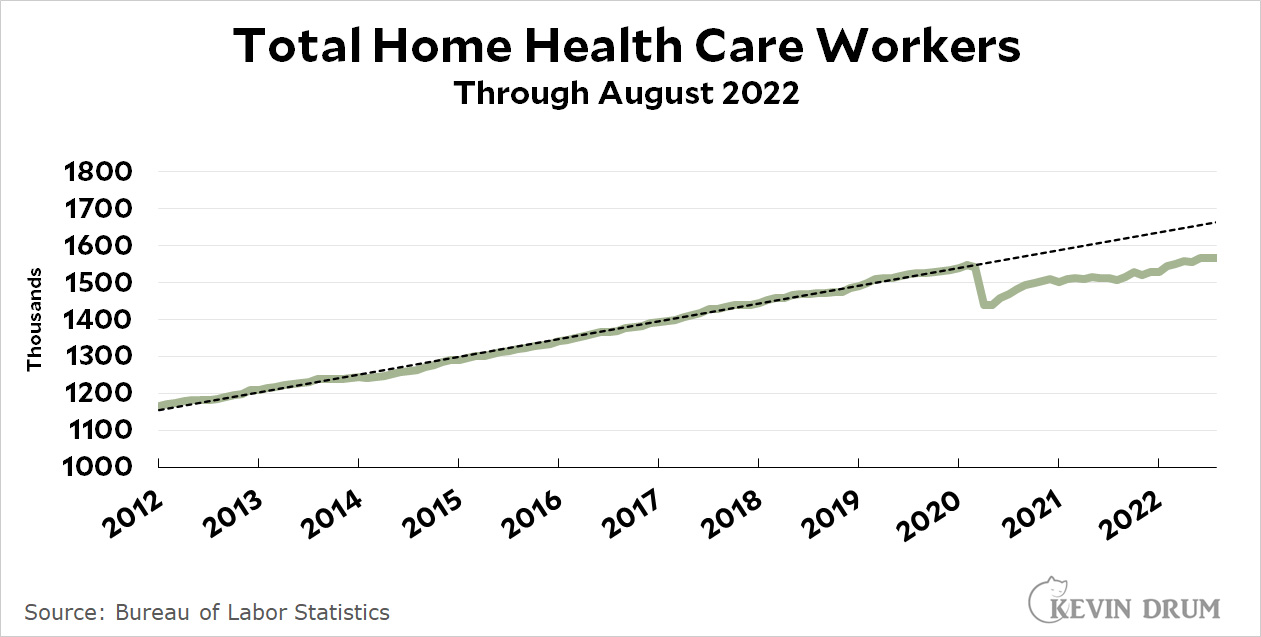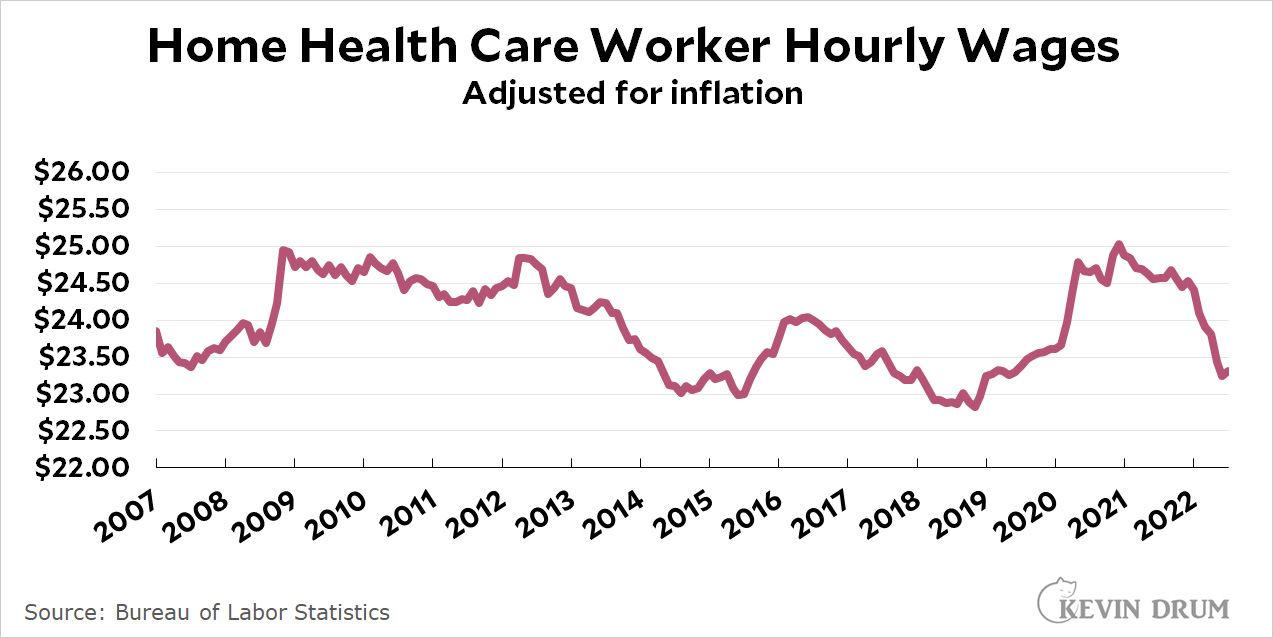Having written a technical preface a couple of days ago, it's now time to write a review of Brad DeLong's Slouching Towards Utopia. I'd like to keep this tolerably short, but even 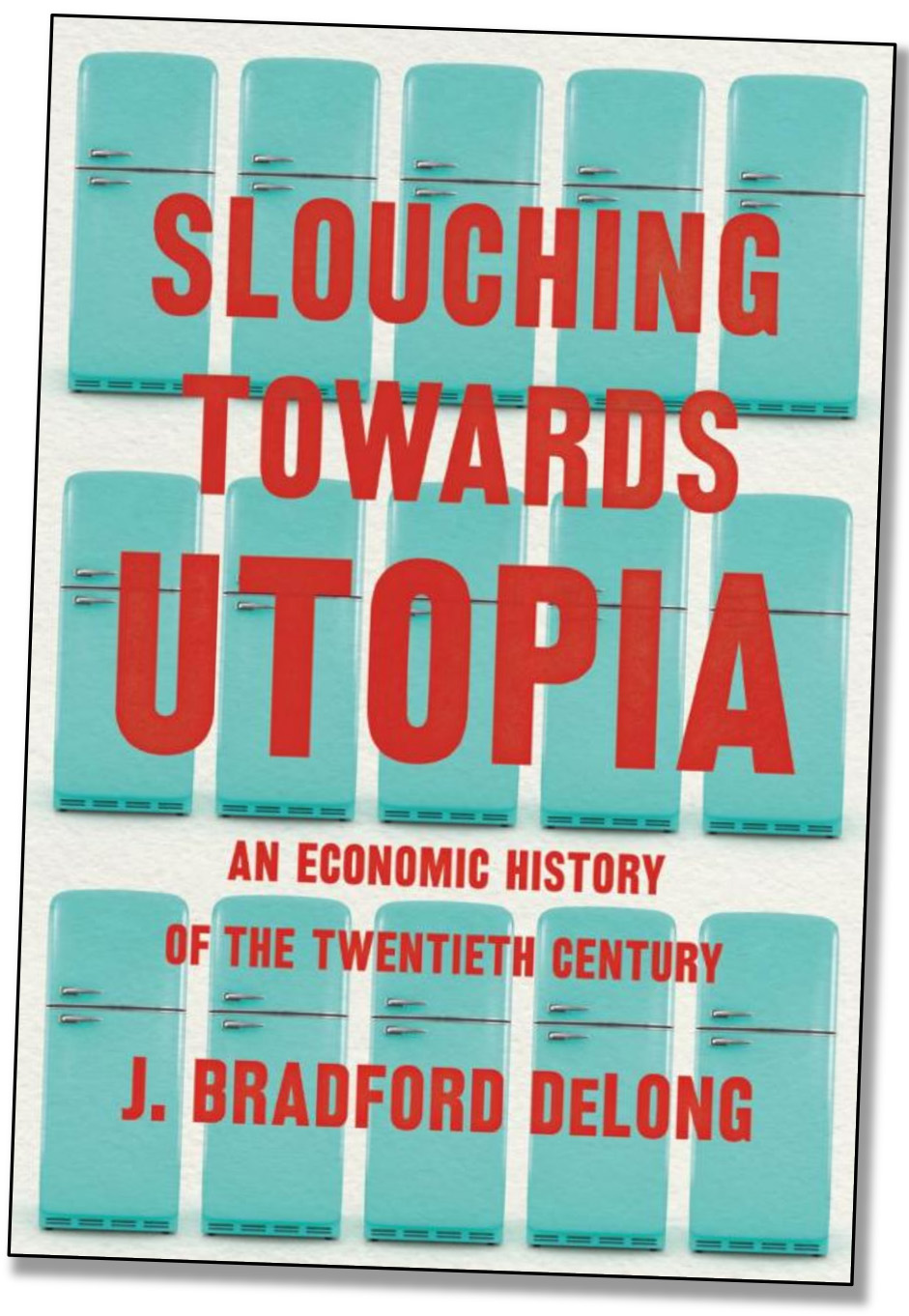 as I type these words I know that's not in the cards. Don't say you weren't warned.
as I type these words I know that's not in the cards. Don't say you weren't warned.
OK then. Roughly speaking, I'd say there are two main themes in STU:
- The year 1870 is a breakpoint in human history thanks to the development of globalization, modern corporations, and industrial research labs. Because of these things, it's the first time that the world—or, more precisely, the northern half of the world—broke out of its Malthusian trap and began to provide permanently higher incomes to common workers. (I am skeptical of this for reasons I outlined at length in the preface.)
- The economic history of the "long 20th century" from 1870-2010 was primarily a contest between free-market capitalism, which produced growth but not an equitable distribution of goodies, and the welfare state, which interfered with the efficiency of the market but allowed everyone to benefit from technological progress.
First things first: purely as an economic history, this is a wonderful and engaging book. I didn't learn a lot that I didn't already know, but a large part of that is because I've been reading Brad's stuff for 20 years. Nevertheless, I enjoyed reading it again all in one place.
But I had a problem with it. I explained in the technical preface that I didn't buy the notion that 1870 was special per se. Rather, it just happened to be the point on the growth curve of the Britain-led Industrial Revolution that produced per capita GDP high enough to start trickling down to everyone.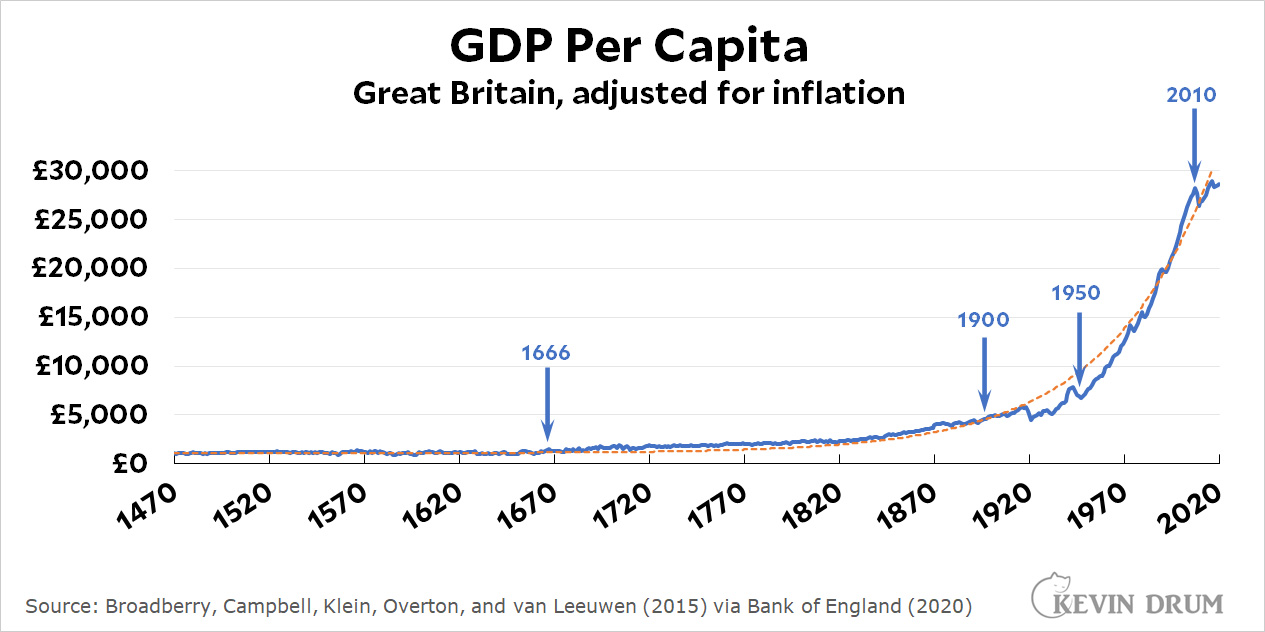
Nor did 1870 represent a sudden outbreak of new inventions. Here's a brief list of 19th century inventions and ideas:
- High-pressure steam engine
- Steamboats
- Steam locomotives
- Canal networks
- Telegraph
- Rifle/revolver
- Electric motor/generator/dynamo
- Vulcanized rubber
- Portland cement
- Colonialism — I'm thinking here not of the necessarily limited coastal version but of the brutal extractive version that dominated the second half of the 19th century.
- Modern fractional reserve banking
- Steel-hulled steamships
- McCormick reaper
- Sewing machine
- Bessemer process
- Limited liability companies
- Safety elevator/skyscrapers
- Progress — by which I mean the idea that not only should we expect technological progress, we should actively promote it. Manifestations of this are things like patent offices, industrial labs, and research universities.
- Internal combustion engine
- Mail order catalogs
- Telephone
- Light bulb
- Public health improvements
- Automobile
- AC electricity grid
These things span the entire 19th century. Some are ordinary physical inventions (steamships, light bulbs) while others are ideas or organizational improvements (progress, capitalism). Some have specific invention dates, while others developed steadily over long periods. But nothing about this list suggests any kind of sudden surge around 1870.
Does this really matter? It does. The whole concept of 1870 being special is surprisingly central to Brad's larger thesis. His contention—and I hope I'm being fair here—is that the miraculous growth which started in 1870 opened up the doors to utopia (thus the title of the book). That is, it suddenly became possible to envision a future in which every one of us was literally awash in the products of our factories and laboratories. All we had to do was follow a simple path that was now clearly marked out for us.
But we blew it. There was World War I. Then the Great Depression. And World War II. Then the "Glorious 30 Years" of fabulous growth, but followed by the neoliberal turn in which ordinary workers were once again cannon fodder for the rich. And all along we failed to include the global south in our growth revolution. Finally, the Great Recession of 2010 exposed our financial system as a lie, and in 2016 the election of Donald Trump showed that ordinary workers were fed up and no longer believed the lie.
That sounds pretty discouraging. But what if 1870 isn't special? What if it's just another year in a long period of human progress—unprecedented progress, to be sure, but a long, continual period nonetheless? If that's the case, then there's no reason to view it as a turning point and no reason to think that human nature should change just because we all got steadily richer. In other words, we didn't blow it. We just did what h. sapiens does and always has done.
As Brad knows well, because he's written similar things frequently, we humans are just overclocked primates. We have developed a thin layer of cognition that allows us to gossip more effectively and solve differential equations on request, but that thin layer lives on top of millions of years of primate evolution. And we are still bound by it. In particular:
We are territorial.
We are patriarchal.
We are hierarchical.
We are addicted to dominance displays.
We are tribal.
So just as always, after 1870 we continued to have stupid wars. We continued to base our social structures on racism and tribalism. We continued to be seduced by charismatic (male) leaders. We continued to do stupid things just to show that we couldn't be pushed around.
This is, perhaps counterintuitively, a more optimistic view of the world than Brad's. He thinks something should have changed in 1870 and he's disappointed that it didn't happen. His entire book, but especially the last few chapters, is clouded by despondence over the events of the past century and, especially, the past decade.
I, on the other hand, think that nothing special should have happened just because we got better at inventing things. And it didn't. We just continued on our sloppy way, complete with wars and exploitation and lynchings and occasionally lunatic political parties. Still, we've made progress on all these things. Not a lot, but what do you expect in only a few hundred years?
This is why, for example, I think that our current MAGA-inflected politics is a pothole, not a roadmap for the future. We'll get over it.
As for economics in general, you all know what I think: in another 20 or 30 years we will have cheap, genuine artificial intelligence. That will be a breakpoint in human history and will make all our current arguments moot. Practically any economic disagreement you can think of simply makes no sense in a world dominated by robots and AI.
But we should keep arguing anyway. After all, I might be wrong about AI.

